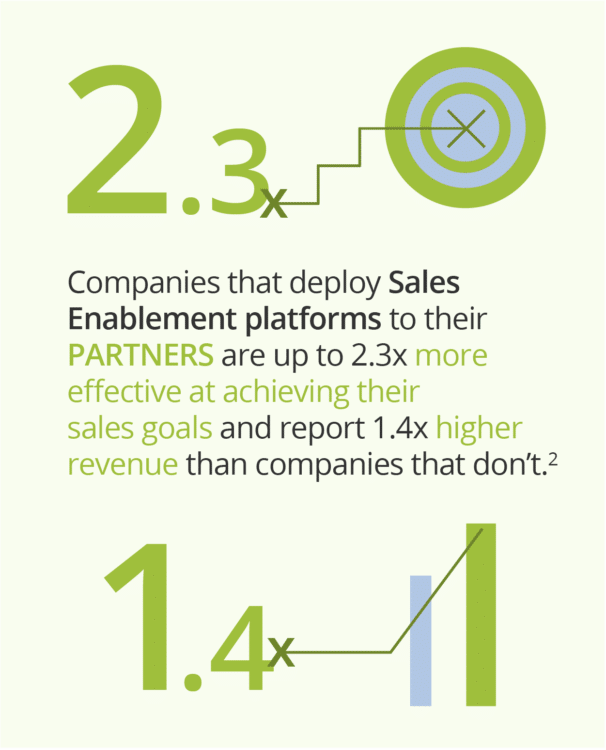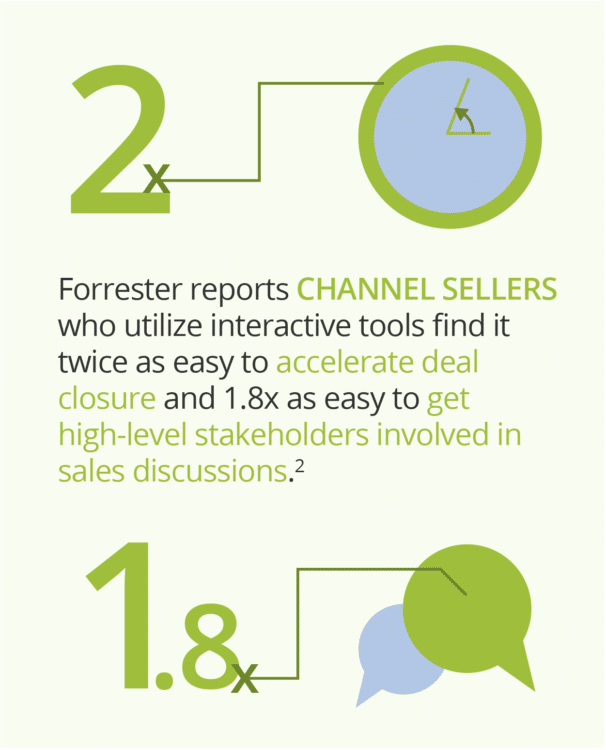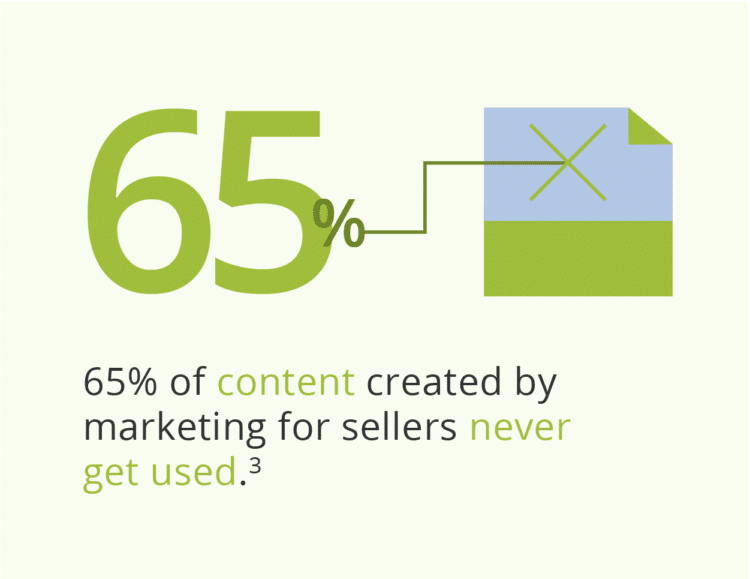The Sales Enablement space continues to pick up speed, and for good reason. According to a Forrester Consulting study, commissioned by Mediafly, companies that implement an interactive Sales Enablement platform accelerate deal closure by up to 43% and drive company growth by up to 60%1.
Planning to incorporate a Sales Enablement technology into your overall sales strategy? Factor the considerations below into your evaluation to maximize success.
1. Time to Value
The platform you select should be fast to start, meaning it can be successfully implemented quickly. Working with a Sales Enablement technology vendor that takes a partnership approach to deployment and a high-touch approach to customer relationship management can ensure your implementation runs smoothly, your solution checks all of your boxes, and the technology continues to meet the ever-changing needs of your business.
2. Ease of Use
To drive adoption, the Sales Enablement platform you choose should also be easy to use. An ideal Sales Enablement technology will enable marketers to effortlessly add and update various types of content in one place and put that content at sellers’ fingertips. This ensures sales reps can quickly create personalized and dynamic sales presentations that resonate with buyers and pivot conversations to address what the buyer wants to talk about in real-time.

3. Accessibility
Not all sales conversations happen in a boardroom. The Sales Enablement technology you select should be mobile-ready and available anywhere, whether online or offline. Companies that sell through a distribution channel should also ensure they can offer both direct and indirect/channel sellers access to the same Sales Enablement tools and technologies to increase visibility into the sales process and maximize return on investment.

4. Next-Generation Sales Tools
A Sales Asset Management (SAM) or Digital Content Management System (DCMS) is great for collecting and storing sales collateral but doesn’t do anything for the buyer experience. In a digital-first world, your sellers need more than static content to meet buyer expectations.
Deploying a Sales Enablement solution that incorporates cutting edge technologies like Artificial Intelligence (AI), Machine Learning (ML), and interactive selling tools will help your sellers elevate the sales conversation with real-time data and insights and differentiate themselves in a crowded market. AI and ML can help sellers determine the next best action depending on where the buyer is in their journey. Interactive selling tools like ROI calculators and health assessments capture input from the buyer that your sellers can use to guide value-driven discussions that demonstrate the financial impact your product or service will have on their business.
Implementing a DCMS or SAM solution is great first step, but having the option grow the solution with your business and improve the buyer experience will safeguard your investment in Sales Enablement.

5. Robust Reporting and Analytics
It can be a struggle to align your sales and marketing teams. Your marketers are more than likely creating content that doesn’t get used. Your sellers are frustrated that the content available doesn’t meet their needs. Implementing a leading Sales Enablement platform and integrating it with other key business systems like CRM ensures you can automatically capture content presented, who it was presented to, and at what stage of the sales cycle, thereby directly correlating content with revenue. Understanding which content drives positive sales outcomes including increased revenue and sales velocity helps marketers focus on creating and optimizing content that sells.
6. Flexibility
Whichever Sales Enablement platform you select will become an integral part of your sales technology ecosystem and help you streamline business processes. To protect your existing technology investments, including CRM and LMS, and ensure you can build in future functionality as new technologies emerge, it’s imperative to select a platform with an open and flexible API. Ideally, the solution will also offer the scalability needed to grow your user base with your business. While you may choose to pilot a Sales Enablement technology with one sales group initially, you’ll inevitably expand your user base across categories, channels, or regions as you begin to realize ROI.
7. Customizations
If required, your Sales Enablement solution should be easily customizable. Every business is unique and requirements can vary drastically. Your solution provider should be prepared to build in custom functionality should the out-of-the-box solution not tick all of your boxes. You should also have the option to brand your application for more consistent buyer experiences. If you have a unique business model, a homegrown solution doesn’t have to be your only option.
8. Security
This goes without saying, but for good measure, any technology platform you select should meet, or preferably exceed, your company’s security requirements. Ensure any technology vendor you work with uses industry-standard best practices to protect data and is compliant with necessary laws and regulations like the General Data Protection Regulation (GDPR).
Sources:
- “How B2B Sellers Win in the Age of the Customer”, a commissioned study conducted by Forrester Consulting on behalf of Mediafly.
- “It’s Time to Enable Your Channel Sellers for Evolved Selling”, a commissioned study conducted by Forrester Consulting on behalf of Mediafly, July 2018.
- Sirius Decisions, 2018.

Comments are closed.